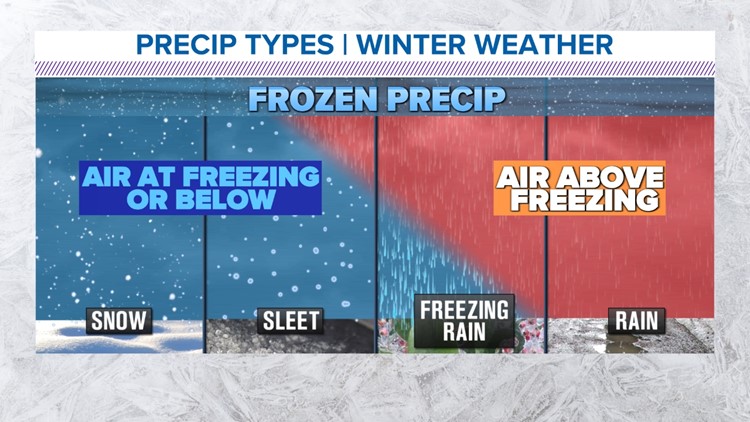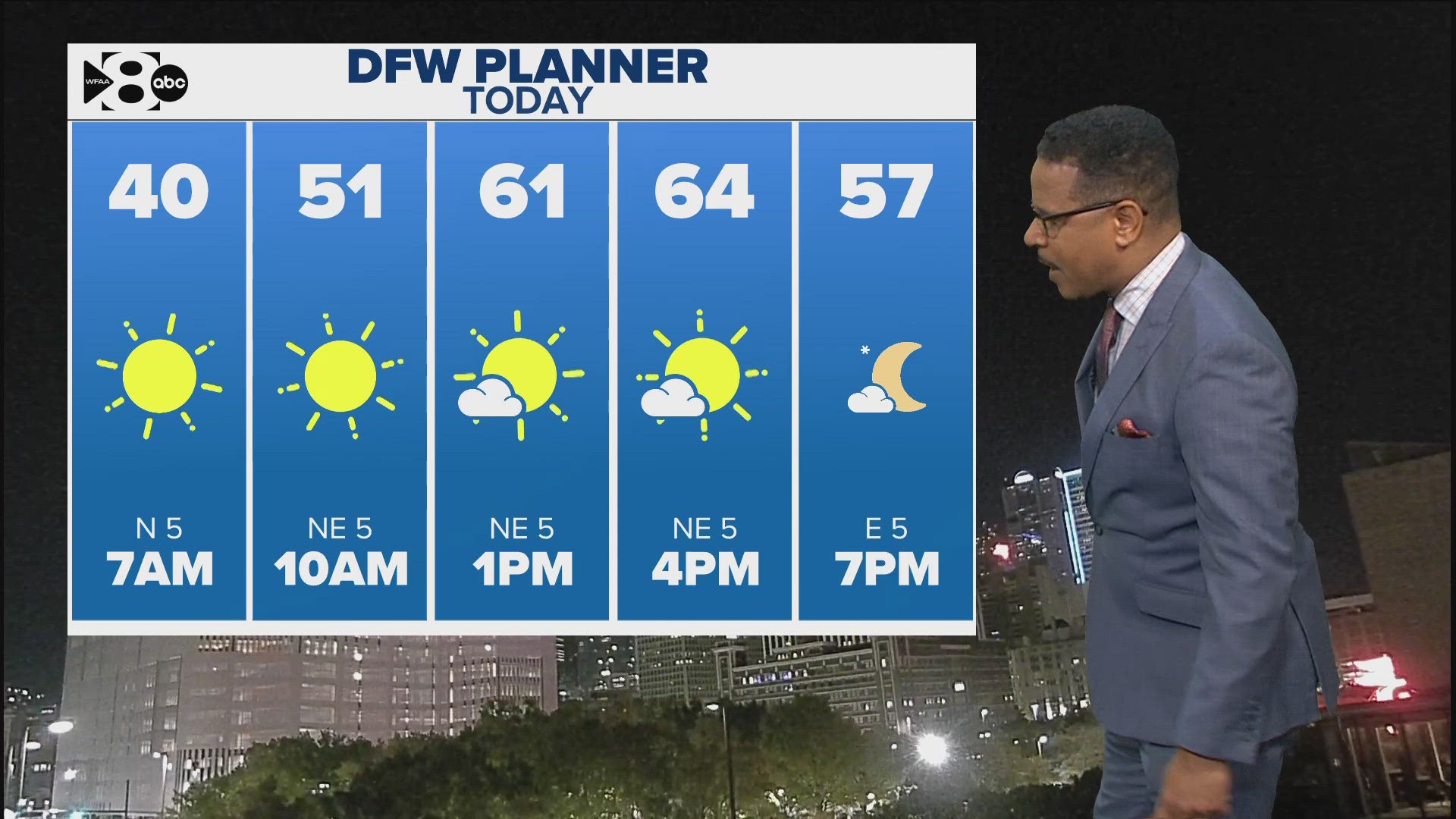DALLAS — The winter weather event in North Texas this week is expected to mainly be ice. Not snow. But ice may come in a couple different forms: sleet and freezing rain.
What’s the difference?
Simply, sleet is frozen pellets of ice. Freezing rain is liquid rain that freeze on contact with a surface (road, car, mailbox, etc.) when temps are below freezing.
Sleet starts out as snow well above our heads in the clouds. As that snow falls into a layer of the atmosphere that is above freezing, it melts. But then those now raindrops fall into a layer of the air that is below freezing closer to the surface. Those raindrops refreeze into ice pellets called sleet. You know it is sleet because you can hear it “plink, plink” on the hood of your car or any hard surface. Sleet typically does not cause as many problems on the roadways as freezing rain does, unless it significantly accumulates. If sleet comes down heavily it can cause sleet-covered roadways, which would definitely be slick.


Freezing rain is just liquid rain. Falling the same way most rain falls. But the area right near the ground is below freezing. So that liquid rain freezes on contact with the below-freezing ground. This typically happens first on elevated surfaces such as bridges and overpasses, which run colder than other surfaces. Ice-coated trees, powerlines, cars, etc. are the result of freezing rain. Since freezing rain causes ice, that ice is typically clear, which is hard to spot on roadways. You can be driving along and not even know that the road you are on is ice-coated because it looks “dry” due to the clear ice from freezing rain.
Freezing rain is TYPCIALLY the most problematic type of winter weather since it causes icy conditions. Especially on the roadways. But higher amounts of ice accumulation on trees and powerlines can cause power outages as well.


